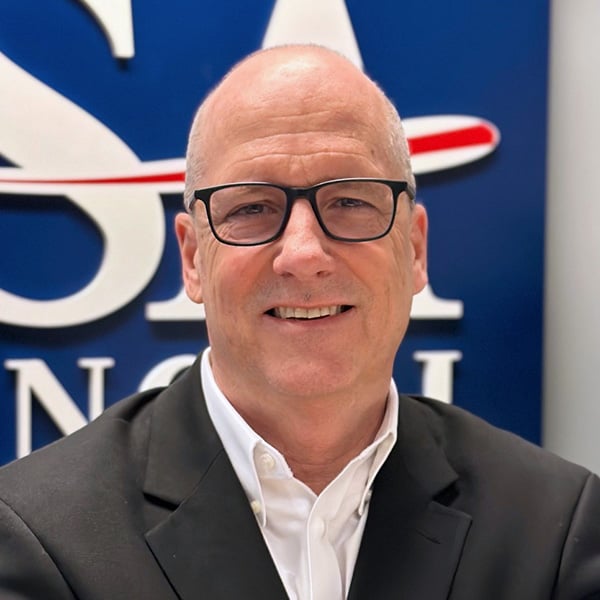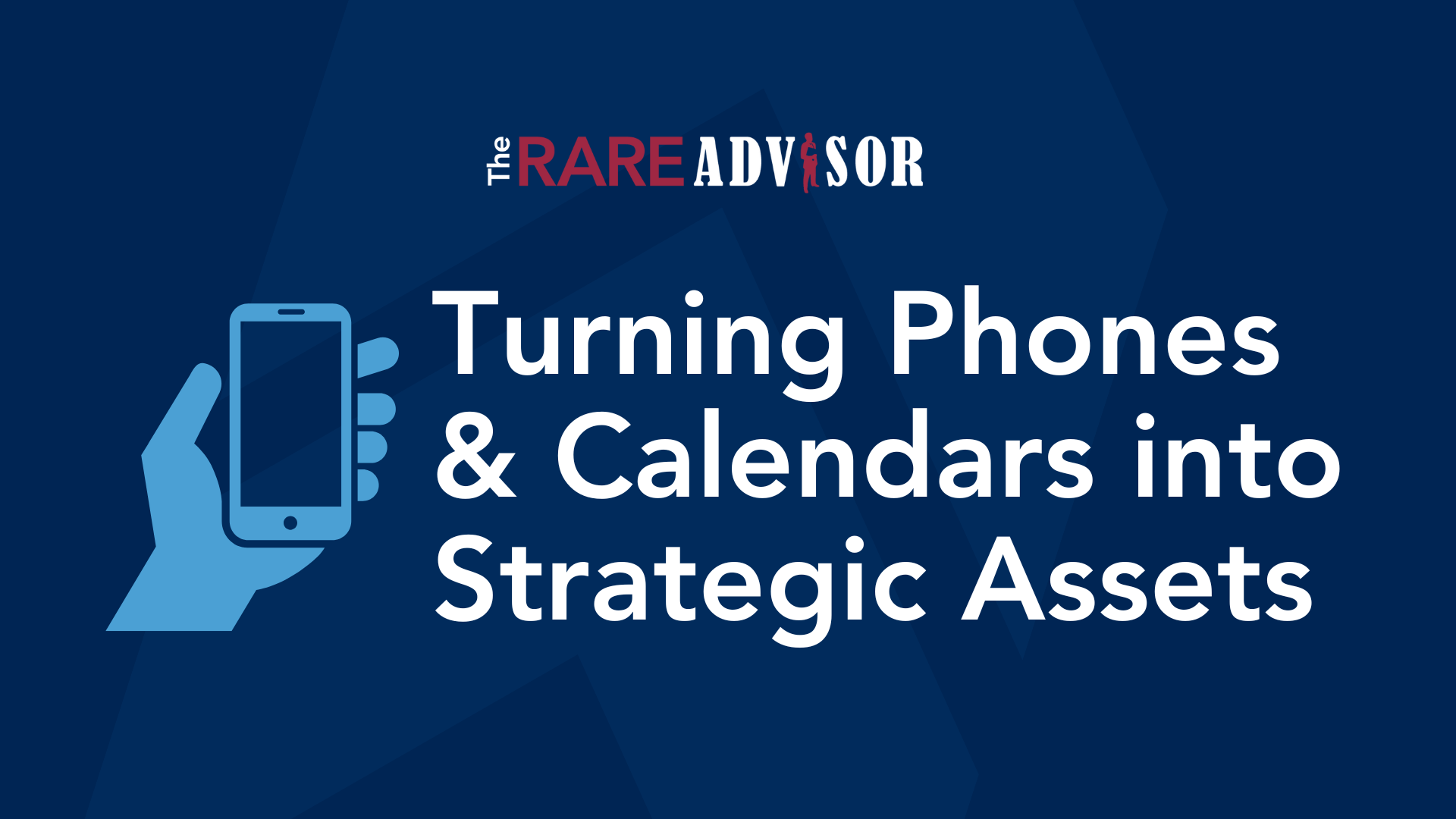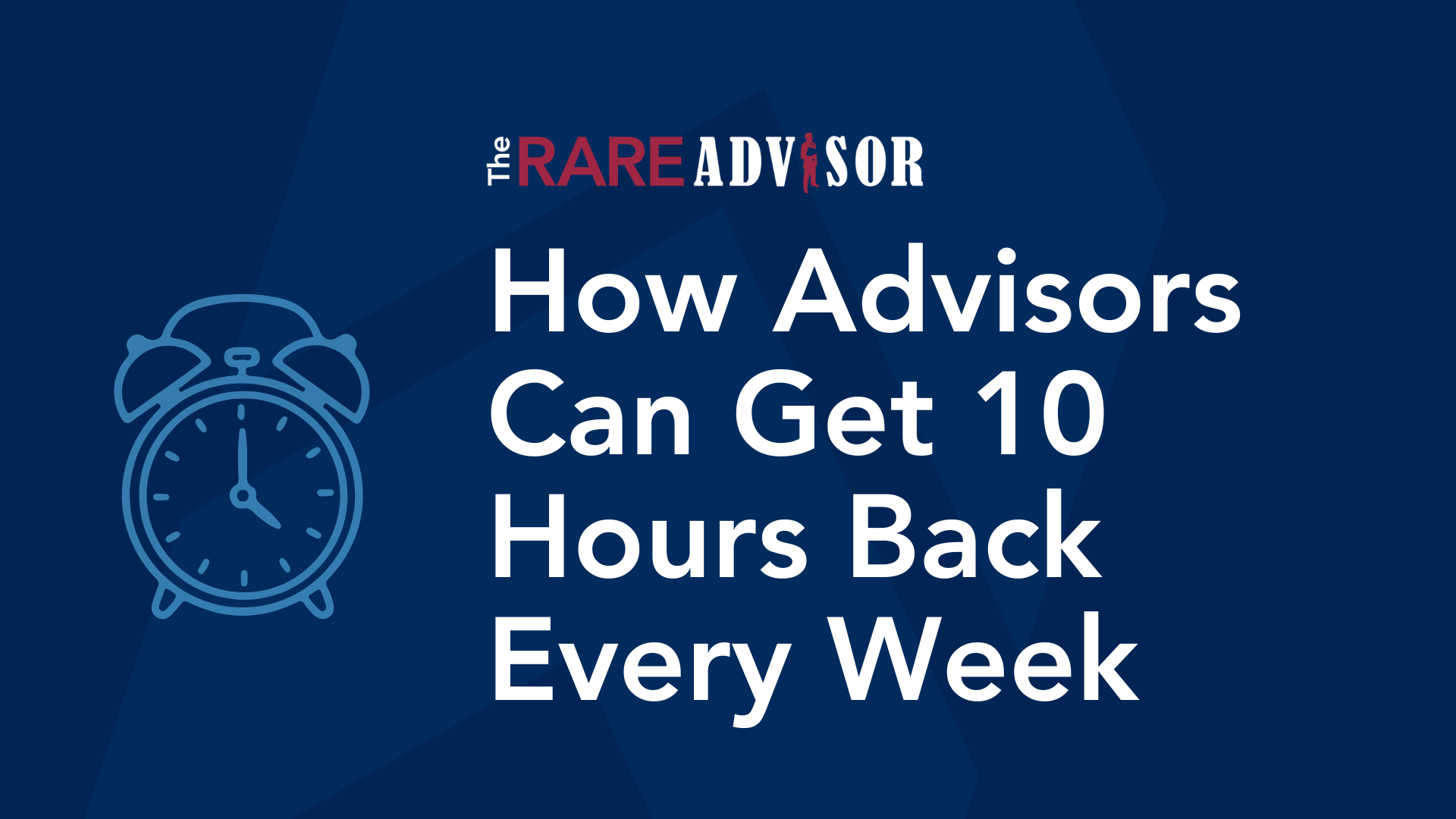Three Issues that Stall Enterprise Growth

Compensation and commoditization are no longer industry buzzwords. They are real issues that are sure to continually increase in the coming years and provide threats to successful advisory practices. As a result, the goal of every firm should be to replicate their best clients, and even better would be to compel those clients to replicate themselves.
Standing in the way of your ability to accomplish these goals are issues you face every day in your practice. In fact, there are three specific issues that could be holding you back from growing your practice:
Issue #1: Increasing Client Acquisition Costs
Marketing and advertising will always be a part of every business. And while the issue of client acquisition will never go out of style or become irrelevant, there are actionable and proven processes to teach the already convinced to convince new people on your behalf. Most importantly, we find that your best clients (your “advocates”) want to do just that; introduce you to others. Left to their own devices however, wondering what to say or describing you only in financial terms, we know that they simply won’t refer you with any conviction. As a result, the advisor is left receiving lukewarm referrals that never materialize. To maximize referrals, the difference-maker is to create a compelling story around your brand and proprietary process; one that ignites emotion in prospects and clients.
The practices that are able to deliver this story and process with perfection no longer need to prospect the old-fashioned way. Their best clients have become so proficient in sending high-quality introductions that the pipeline is always full…with advocate prospects. Consistent, high-quality client acquisition is not an accident or left to chance. It is a predictable process.
Issue #2: Creating Professional Contrast in a Sea of Sameness
Over the years of consulting, we have had investor clients share with us after a first appointment with a prospective new advisor that they wish the advisor had, “told me something I don’t know.” They continue, “I’m pretty sure I know what this advisor does. She obviously cares deeply about clients and her practice. She obviously is skilled and experienced, and she obviously has a beautiful office and gracious team, but I wanted a way to connect on an emotional and personal level.”
By not creating professional contrast, clients are left to process only the data of the industry. They are forced to try to understand your way of managing money or solving financial problems. As a result, these relationships are left to drift into the “sea of sameness.” This affects new client acquisition and the ability to competitor-proof and retain your best clients. Lastly, your existing clients will lose the desire to make high-quality introductions.
In our work with advisors, we like to call this the “uniqueness” or “only-ness” test. It is where we first uncover, identify, and create a firm’s brand. It is this personal brand and identity that creates professional contrast. If you are asked what is unique about what you do, does your answer sound the same as many of the other advisors in your town? Be honest with yourself; it’s critically important. What is your proprietary process?
Issue #3: The Fee/Cost Discussion
Clients that focus solely on fees or costs is a result of them not fully understanding and appreciating the value their advisor can provide to them over the life of the relationship. This is NOT the fault of the client; it’s on the advisor. When asked to describe the relationship clients have with their current advisors, many clients will look to the past and mention things that have been done or were accomplished, and when pressed to look to the future, many are stumped as to what to expect.
This is a mindset shift that an advisor must help clients to understand, and it starts by building and providing processes around the idea of “future-pacing” relationships. When clients have a clear understanding that as their lives unfold and needs evolve, with a process that remains fluid and dynamic, the focus shifts from what my advisor “costs” to what my advisor is “worth.” It’s no surprise to us that many clients say they don’t think about what their advisor costs. Consumers are willing to pay a premium for a quality, high-level service that is understandable and tangible, but it must be apparent that they are “getting what they pay for.” While money is a very tangible thing, often what advisors do with it is very intangible to clients. In the absence of real (or even perceived) value, the focus will always revert to cost. Shifting to worth requires taking the abstract nature of what you do and making it tangible.
Creating Scale and Increasing Enterprise Value
The ability to scale or grow a practice past the proverbial “tipping point” that every organization eventually experiences can be easily achieved by advisors. Many times, it is just a matter of filling a small opportunity gap that can cause hockey stick growth. If you want to skip the trial and error of getting past your tipping point and learn about our “just-add-water” process that increases enterprise value, let's talk.
Author Info

Steve Phillips is the Chief Practice Management and Development Officer, joining USA Financial in 2019. He leads the coaching and...
Related Posts

Access by Design: Turning Phones and Calendars into Strategic Assets
In this episode of The RARE Advisor, host Aaron Grady and practice management consultant Allan Oehrlein continue their discussion on time allocation by exploring what comes next: operationalizing structure across the entire advisory team. They break down why the phone is the “front door” to the firm and the calendar is the “engine room,” and how elite practices use standardized phone scripts, the strategic power of the word “unavailable,” intentional scheduling rules, and team empowerment to build consistency, capacity, and trust. Aaron and Allan outline how designed access—not unlimited access—creates scalability and a stronger client experience, while reducing reactivity, burnout, and advisor bottlenecks. They also offer practical challenges advisors can implement immediately to redesign their phone and scheduling processes in ways that elevate both team culture and enterprise value.

The Psychology Behind Your CTA: Why Prospects Don’t Click “Book a Call”
In this episode of Financial Advisor Marketing Playbook, Mark Mersman breaks down the real psychological barriers that stop prospects from clicking “book a call” on an advisor’s website—and how small language and design changes can dramatically improve conversions. You’ll learn practical, compliant fixes including softer CTA language, expectation statements, empathy‑based messaging, simplified design, and reassurance techniques that lower emotional friction. If you want a website that encourages prospects to take the first step confidently, this episode delivers actionable guidance advisors can implement immediately.

How Advisors Can Get 10 Hours Back Every Week
In this episode of The RARE Advisor, host Aaron Grady and USA Financial Pareto coach and Practice Management Consultant Allan Oehrlein dive into time allocation as a core lever for advisory success. They unpack the biggest time drains—email, unsolicited calls, and open-door interruptions—and lay out a practical framework for calendar rebalancing that starts with personal time, management time, client appointments, dedicated communications windows, “work on the business” time, and high-impact growth activities. With real-world stories showing how advisors shift from reactive days to structured weeks (and even reclaim Fridays), Aaron and Allan share easy-to-implement tips: color coding calendars, scheduling buffers, daily huddles, and call/appointment protocols. If you’re ready to audit your calendar, define your ideal week, and create structure that truly liberates your practice, this conversation is your next step.

Access by Design: Turning Phones and Calendars into Strategic Assets
In this episode of The RARE Advisor, host Aaron Grady and practice management consultant Allan Oehrlein continue their discussion on time allocation by exploring what comes next: operationalizing structure across the entire advisory team. They break down why the phone is the “front door” to the firm and the calendar is the “engine room,” and how elite practices use standardized phone scripts, the strategic power of the word “unavailable,” intentional scheduling rules, and team empowerment to build consistency, capacity, and trust. Aaron and Allan outline how designed access—not unlimited access—creates scalability and a stronger client experience, while reducing reactivity, burnout, and advisor bottlenecks. They also offer practical challenges advisors can implement immediately to redesign their phone and scheduling processes in ways that elevate both team culture and enterprise value.

The Psychology Behind Your CTA: Why Prospects Don’t Click “Book a Call”
In this episode of Financial Advisor Marketing Playbook, Mark Mersman breaks down the real psychological barriers that stop prospects from clicking “book a call” on an advisor’s website—and how small language and design changes can dramatically improve conversions. You’ll learn practical, compliant fixes including softer CTA language, expectation statements, empathy‑based messaging, simplified design, and reassurance techniques that lower emotional friction. If you want a website that encourages prospects to take the first step confidently, this episode delivers actionable guidance advisors can implement immediately.

How Advisors Can Get 10 Hours Back Every Week
In this episode of The RARE Advisor, host Aaron Grady and USA Financial Pareto coach and Practice Management Consultant Allan Oehrlein dive into time allocation as a core lever for advisory success. They unpack the biggest time drains—email, unsolicited calls, and open-door interruptions—and lay out a practical framework for calendar rebalancing that starts with personal time, management time, client appointments, dedicated communications windows, “work on the business” time, and high-impact growth activities. With real-world stories showing how advisors shift from reactive days to structured weeks (and even reclaim Fridays), Aaron and Allan share easy-to-implement tips: color coding calendars, scheduling buffers, daily huddles, and call/appointment protocols. If you’re ready to audit your calendar, define your ideal week, and create structure that truly liberates your practice, this conversation is your next step.

